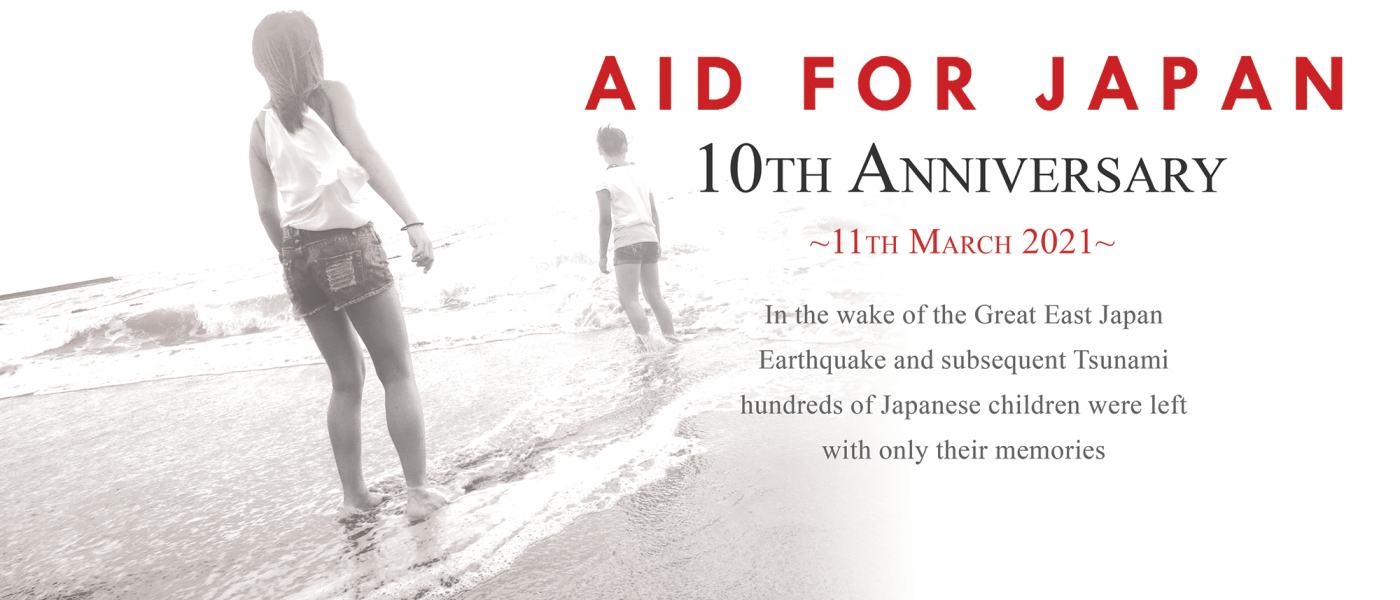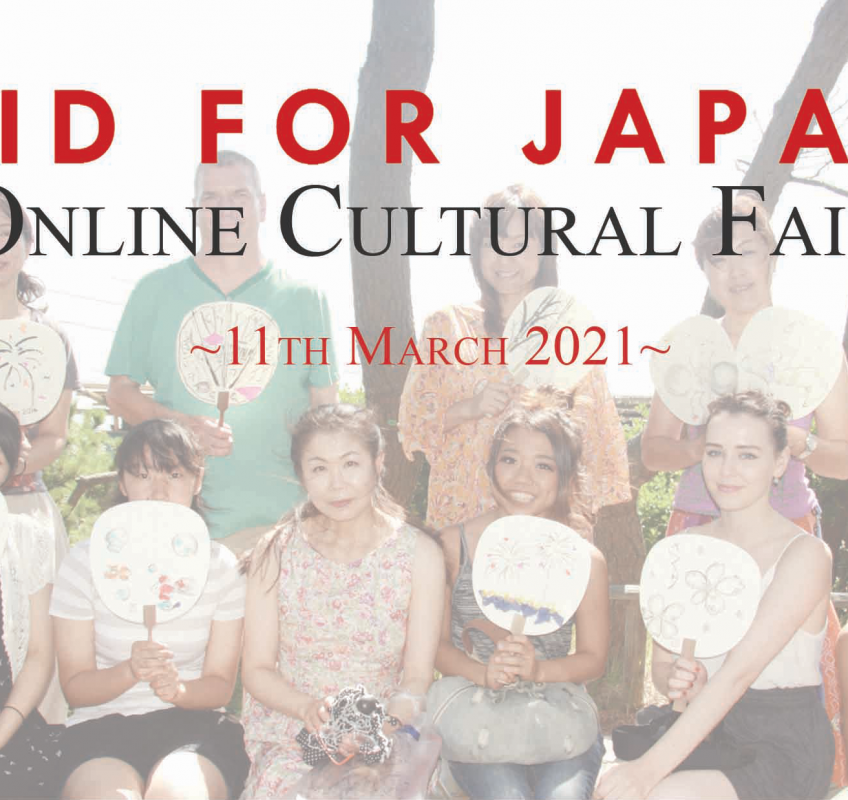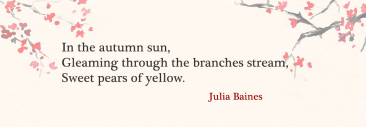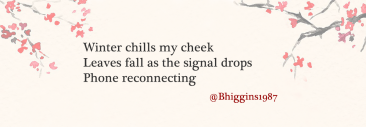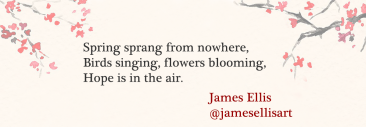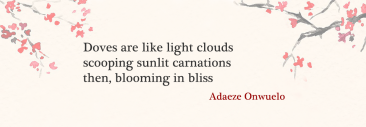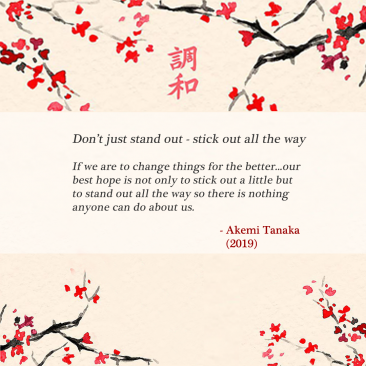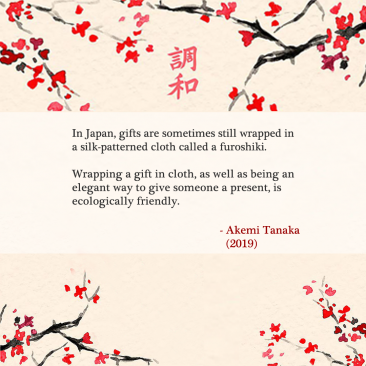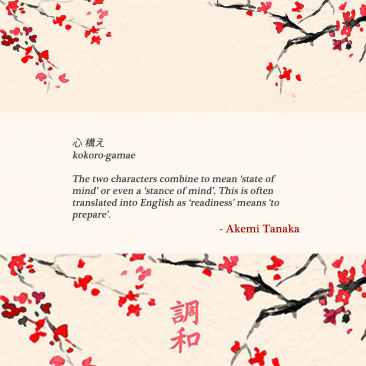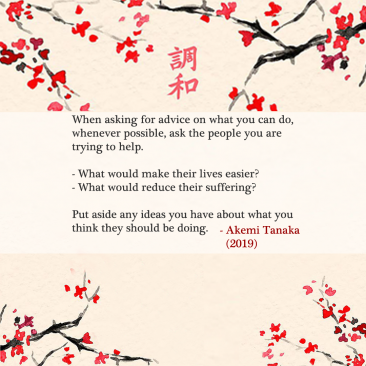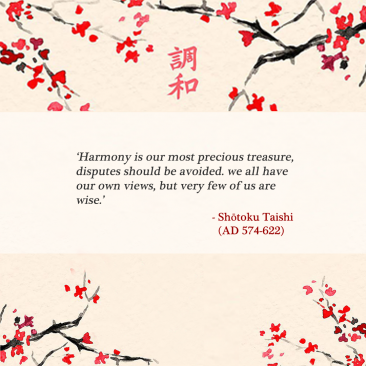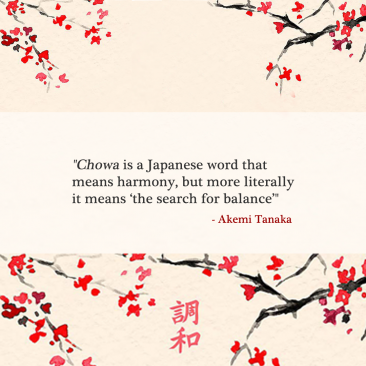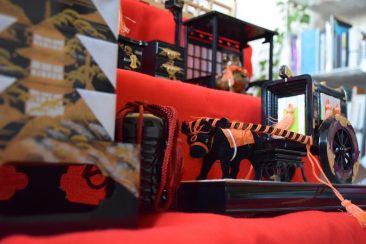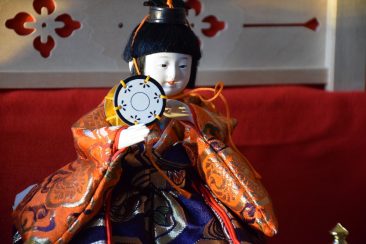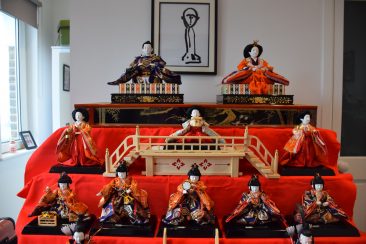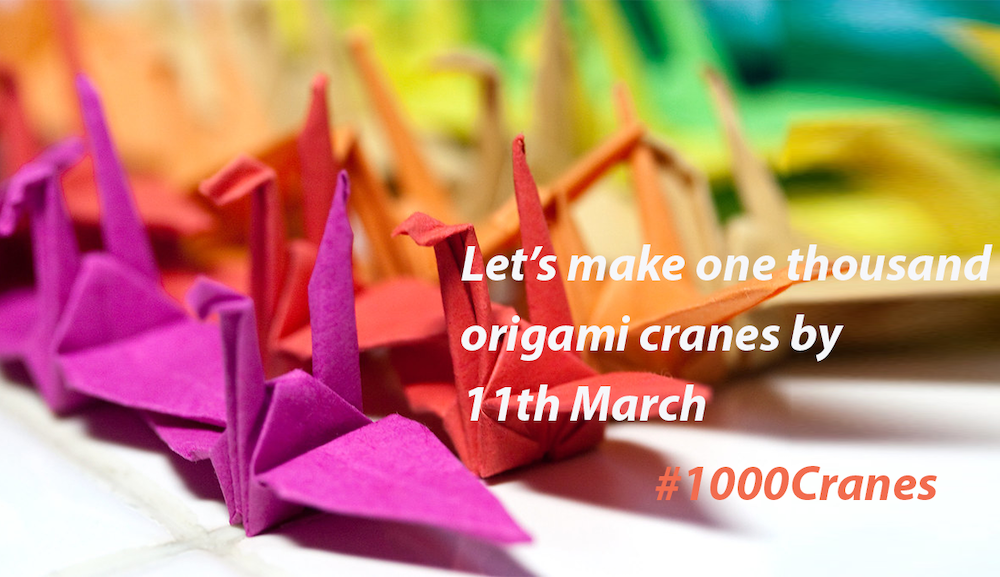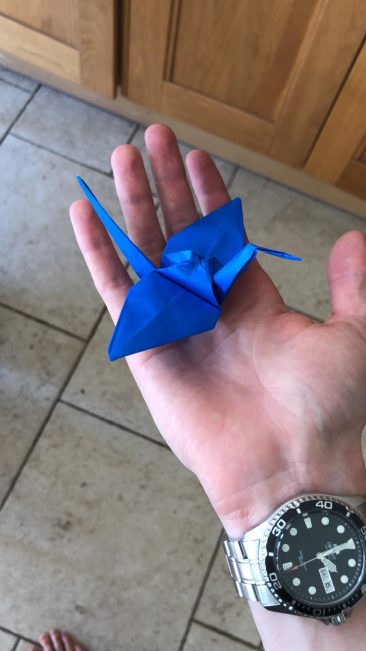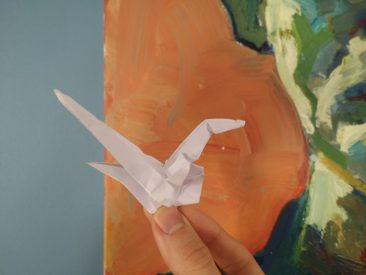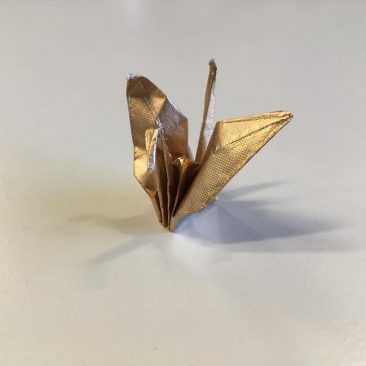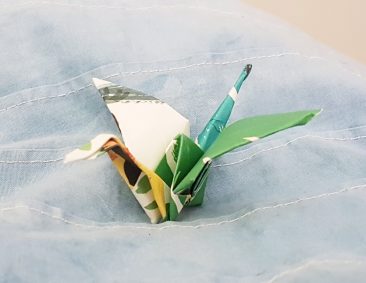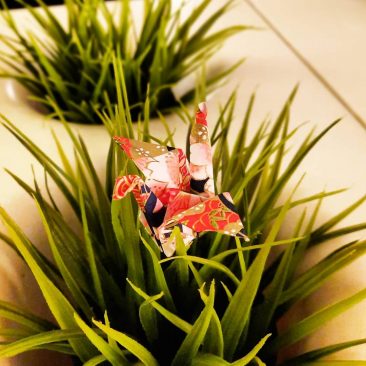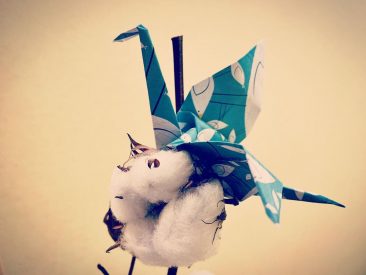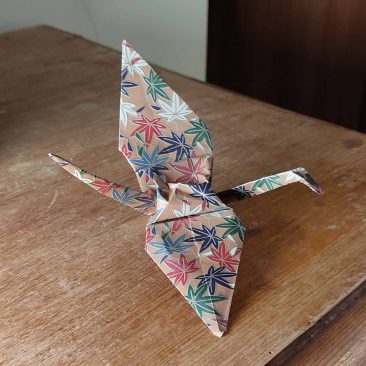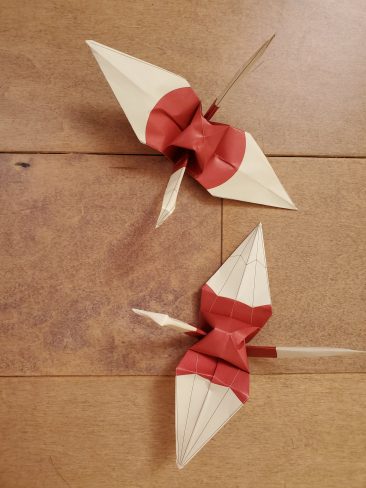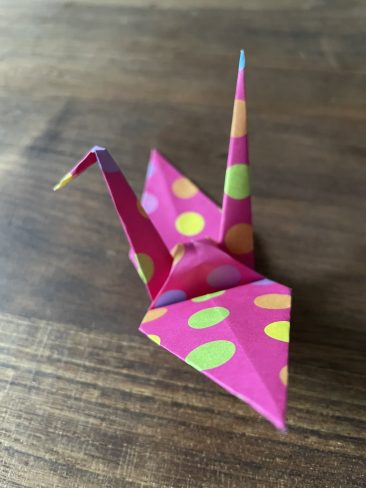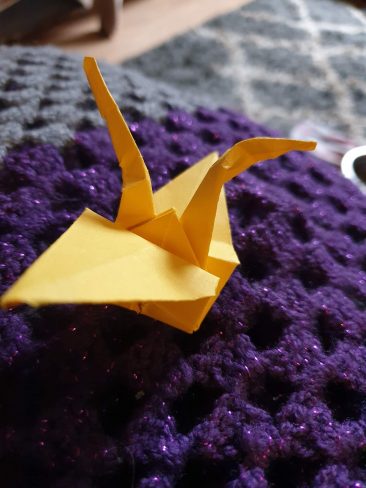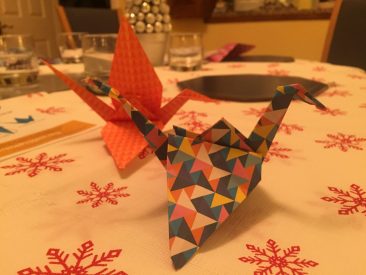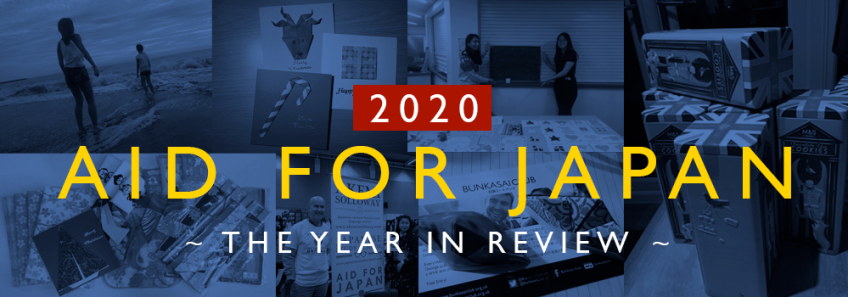Aid For Japan 10th Anniversary
Commemorating ten years…
On the 11th March 2011 the east coast of Japan was struck by an undersea earthquake and subsequent tsunami. As well as the loss of life that this devastating event resulted in, hundreds of children also lost their parents and families.
Aid For Japan was founded by Akemi Tanaka in 2011 to support the orphans of this tragedy. With the advent of the 10th anniversary of the earthquake, it provides an opportunity to look back at the charity’s activities and the lives of those that it has touched.
At the time, the tragedy had a profound effect on Akemi. “As a mother myself, living in London, my heart went out to them and I felt a strong responsibility to help. So, to that end, I set up a new charity specifically to support these children and their education until they become adults and can fend for themselves.”
“They will never forget what happened but, with the help of our kind volunteers, we are working hard to bring some normality back into their lives.”
Researching the situation, Akemi initially contacted several Japanese NPOs (non-profit organisations) who provided good advice and help, particularly in getting in touch with the right orphanages. In Japan, they do not use the word “Orphanage”. Usually the term Jido Yogo Shisetsu is used, meaning a living space for children who do not have parents or who cannot live with parents.

In December 2011, Akemi flew to Japan on a fact-finding exercise to get first-hand experience of what life was like for the orphans who had experienced such devastating losses. Among the Jido Yogo Shisetsu that Akemi visited was La Salle Home near Higashi-Sendai station and also Iwaki Ikueisha based in Iwaki city, Fukushima prefecture. Akemi also visited Ishinomaki, one of the worst places struck by the tsunami.
Back in the UK, Aid For Japan’s initial fundraising events included a dedicated event at Conway Hall in London. Previously, Akemi had been responsible for the Japanese Art Festival (japaneseartfestival.com/), an annual cultural event designed to bring Japanese culture to the UK which had been running since 2009. So, she already had experience in organising Japanese-themed events, but now they took on a new focus with a good cause to promote.
Launching the events under a new name, Bunkasai (文化祭 or ‘cultural festivals’), the initial events carried on the tradition of promoting Japanese art and culture to UK audiences. Akemi also founded a satellite project from this initiative called Bunkasai Club (bunkasaiclub.org.uk). This weekly social event was designed as a meeting place for both English and Japanese people to practice language exchange.
In 2012, Japanese TV showcased the work of Aid For Japan as the charity created the foundations for one of its regular activities. In this case, the invitation to bring some of the orphans to the UK. For children that have lost their parents, this is an important step that not only broadens their view of the world but also reminds them that the world remembers them.
Aid For Japan was also linking up with other events that shared some cultural common ground. This included the annual AmeCon anime event and the Manchester-based Doki Doki (dokidokifestival.com), who regularly featured Akemi as a guest speaker and also adopted Aid For Japan as their charity of choice.
By 2013, Aid For Japan became a busy hive of activity. There were regular appearances at events such as Richmond’s May Fair, charity appeals at the Rotary Club, a ‘Kaiseki’ Japanese 9-course traditional dinner and a special cultural event at Collectionaires – an exclusive range of luxury clothing and accessories for women selected from some of the top designers in Japan. This event (which took place in a ‘pop-up’ shop) also featured a sake tasting experience care of Sam Sake (www.samsake.com) and nail artist Kitsune (www.facebook.com/KitsuneNails) provided beautiful nail art ranging from the subtle and sophisticated to hyper-Japan kawaii (cute) designs. Meanwhile, Akemi offered attendees the opportunity to indulge in the art of the Japanese Tea ceremony and kimono dressage – a refreshing break from a day’s shopping!
Independent game developer Space Budgie (spacebudgie.com) launched the captivating 9.03m, a first person art/empathy game for PC. The developers described 9.03m as: “Not a game in the traditional sense of the word; it aims to humanise, and remember the victims of the 2011 Japanese tsunami. The media is quick to put figures to death tolls in such disasters, and 9.03m tries to remind people of the individuals behind those figures”. The games company donated nearly £5,000 from the proceeds to Aid For Japan.
2014 also saw what was probably the most unique and ambitious fundraising effort for the charity. Little Dom’s Big Adventure. Orchestrated by Dominic Farwell-Cooke, the project involved the enterprising volunteer riding a motorbike all the way from the UK to Japan. Dom had plotted out the journey in precise detail, factoring in four cameras to film his epic adventure, which were relayed via a regular video diary on YouTube. Using an inventive eye for narrative and editing, the end result was an engaging series of videos that formed a gripping adventure story.
Talking a little about why he had embarked on this journey, Dom commented that it was inspired in part by a photo taken of Earth on one of the Apollo moon missions, reminding him that everyone who has lived, is currently living and will live in the future was on that blue orb in the sky. “It’s important to me to help other people” Dom added.
The journey captivated people’s attention as the video diary took on a travelogue aspect. The challenging trip was not always a smooth ride however, with Dom having to contend with fuel leaks, engine failure, illness, rough roads and getting lost. But by the time that Dom reached Japan he had raised nearly £4,000 for the charity.
Other fundraisers also helped to do their part for Aid For Japan which included runners who sought donations for their efforts. This included Chris Pickering’s marathon run in 2015 and Jackie Thomas’ half-marathon the same year. The tough routine for Chris (which included the Ironman Triathlon Japan in Toya, Japan and the Hokkaido Marathon in Sapporo) resulted in raising over £2,000 for the charity in the end.
The summer of 2015 saw Aid For Japan take a team of UK volunteers to Japan as part of our annual residential course. “This was my first ever trip to Japan” commented Emile Loveday, one of the volunteers, “and also my first charity volunteer work. I have found the whole experience so overwhelmingly positive and have found every second rewarding and enjoyable.”
The charity’s Japanese representative Sumika Hayakawa was on hand to help and provided her own personal take when they visited Fukushima: “After the residential course with orphans, the English volunteers came and stayed in my parent’s second house in Fukushima. While they stayed in Fukushima, Tom and Emile did a mini charity concert in the garden and the neighbourhood attended”.
In December, Akemi dutifully collated gifts and messages to send to the orphans in Japan as part of a Christmas initiative. This gesture also became an annual Aid For Japan tradition.
2016 saw the 5th Anniversary of the 2011 tragedy. It provided an opportunity to pause and reflect on the losses that the country had faced, but also the optimism of building for the future. With strong media attention for the anniversary, Aid For Japan featured in the likes of The Guardian and The Telegraph with Akemi explaining the charity’s mission.
“It’s a strange thing to be an orphan in Japan” commented Akemi for The Guardian, “not least of all because the adoption of children is very rare, so many people remain unaware that it’s even a possibility. Foster care is also uncommon. This means that many of the children we work with are either entirely on their own or living with elderly grandparents, and are unlikely to ever find another home or family to care for them. Emotionally they are simply traumatised.”
Meanwhile, Aid For Japan marked the anniversary with a special commemorative event. Traditional Japanese culture was explored through a demonstration of martial art sword techniques conducted by John Evans and the students of the Battodo Fudokan dojo (www.battodo-fudokan.co.uk), provided a captivating window into the skill and discipline required to work with these classic Japanese weapons. The event also featured a traditional Japanese flute (shakuhachi) performance, a talk by Zen Buddhist monk Julian Daizan Skinner Roshi and tasty sushi kindly provided by local sushi outlet Maki, as well as a selection of onigiri and dorayaki donated by The Japan Centre and Wagashi shop.

Attendees walked away from the event with perhaps a stronger impression of the impact that the events of 2011 tragedy had resulted in. Even five years on, the effect of the earthquake/tsunami still has a profound impact on those that survived the devastation, particularly the orphans who had lost everything.
As part of 2016’s plan, three young volunteers from the UK flew out to Japan. This was jointly to help raise funds and also awareness for the charity. David, Alex and Zak (who are all in their teens) invited people to track their progress on a special blog (aidforjapansummerblog.wordpress.com/) which had regular updates on their travels.
The same year, Akemi also visited Fukushima with some of the charity’s volunteers to visit the tsunami orphans. Akemi summed up her feelings on the time that had passed: “It is now a year since we last met these children but, even so, I was so surprised how much taller they had grown and how much more mature they had become. It was most satisfying to see the results of our efforts and that they are growing up into good people”.
Obviously one of the sources of help for Aid For Japan’s funding is from volunteers devoting their time to raise money for the charity. Among the various fundraisers in 2017 was a production of Sleeping Beauty staged by the Singapore-based Cheng Ballet Academy. When Emile Goldberg’s daughter, a student at the ballet school, became part of the event, he saw an opportunity for fundraising for Aid For Japan. As a result, the initiative managed to raise £2,466 for the charity.
In July 2017, Aid For Japan, in partnership with the Japan International Cultural Exchange Foundation (JICEF), staged a Japanese Culture event in London to raise awareness of the charity. JICEF (https://www.jicef.or.jp) is a Japanese-based initiative whose mission is to encourage cultural building through international exchange activities. Akemi gave an introduction to the kimono, as well as a demonstration of the Japanese tea ceremony before completing with a presentation about Aid For Japan. The event also had some generous assistance from The Japan Centre and Wagashi shop. £300 was raised for the charity at the event.
In June 2018, a special charity dinner was organized by Aid for Japan at the Ten no In temple (www.tsurumi-kubutsu.org/tennouin.html) in Tsurumi near Yokohama city. The temple was founded in AD 858 by the Tendai Buddhist sect. Guests at the dinner included members of Zonta International and The Rotary Club hailing from as far afield as the United States, England and Italy as well as local Japanese members and members of the Nara Zonta club.
At the end of July 2018, Maria (one of the orphans that Aid For Japan has formed a close bond with) arrived in the UK to spend a break assisted by Aid For Japan and its team of volunteers. The first port of call was the Asian Wellness, Yoga & Vegan Festival in Richmond. The event featured yoga sessions, Tai Chi and Qi Gong classes while Aid For Japan staged origami and calligraphy demonstrations for enthusiastic attendees. One of Maria’s dreams was to travel on the Eurostar, so regular charity volunteer Angela and interpreter Shiori took Maria to London’s St Pancras station for a trip to Brussels. During the journey, Maria took time to catch up on her science homework while the train zipped to its Belgian destination. Belgium is world-renowned for its chocolate, something which Maria got to sample first-hand by visits to some of the city’s best chocolate shops.
After her adventures in the UK and Belgium, Maria returned to Japan, but sent a message back to her UK friends: “It was a good memory this summer. I really appreciate your kindness”.
2018 also brought sad news when one of Aid For Japan’s trustees, Paul Algar, passed away after a long illness. Paul had been a tireless supporter of the charity and had regularly offered his services at many of Aid For Japan’s fundraising events. We all appreciate Paul’s warm and kind help to the orphans and the loss of his presence at Aid For Japan will be keenly felt by all.
In 2019, Akemi was recognised for her work with the charity by then-Prime Minister Theresa May. In a personal letter, the Prime Minister wrote:
“Through ‘Aid for Japan’ you are helping children who suffered the devastating loss of parents and loved ones in the Tohoku earthquake to rebuild their lives. Thanks to your tireless fundraising efforts, the charity’s residential programmes are ensuring that these young people can regain their confidence and reach their potential.”

Aid For Japan commemorated the 8th Anniversary of the earthquake with a special event at Islington Yoga School with the generous help of long-time supporters Fudokan Battodo. The event included a video with a teacher recounting his own story about the tragic events of 2011. Yukio Saito is headmaster of Ishinomaki Nishi High School. Ishinomaki town was severely damaged by the tsunami in the disaster. Saito Sensei has also written about the experiences of those at the school during and after the disaster.
As the school buildings were on higher ground, many local people took shelter there and the school gymnasium became a mortuary that eventually held more than 700 bodies. The title of his book Ikasarete Ikiru (lit. ‘Allowed to live so Live’) describes the mission of those who survived – both children and adults. Generous donations from events attendees helped raise over £600 for the charity.
Once again, Doki Doki welcomed Akemi as a guest speaker for their 2019 event. Akemi gave a talk about the charity and also took part in a panel answering the audiences questions about Japanese culture and her new book The Power Of Chowa.
With events and vendors covering Japanese food, dance, music and martial arts, the two-day event was very well attended. In the end, a staggering £7,000 was raised by Doki Doki directly for Aid For Japan. Funds were also raised by Genki Gear (genkigear.com), who donated sales of their Doki Doki T-shirts which raised £356.95 and also the Meian Maid Cafe who donated proceeds from their cafe event.
Aid For Japan has also benefitted from the contributions from younger fundraisers too. The students at Haberdashers’ Aske’s School for Girls in Elstree have staged their own Japanese cultural events, including language lessons, origami and even a sakura-themed cafe at the school.
2020 proved to be an extremely challenging year for the charity. In March, Aid For Japan had planned to stage its annual fundraising event in London to mark the 9th Anniversary of the Great Japan Earthquake. But the advent of the Covid-19 pandemic was causing many venues to shut down. To safeguard the well-being of our attendees, supporters, venue staff and the public, Aid For Japan took the decision to postpone the event.
2021 marks the 10th Anniversary of the Great Japan Earthquake, yet Aid For Japan’s work continues today even as the orphans from this tragedy become young adults. The charity’s mission has adapted and changed over the years, but support for the orphans has always been the key focus.
Ten years later, the journey continues.
Aid For Japan’s progress would not have been possible without the assistance and support of countless organisations, companies, events and individuals, all of which have provided vital assistance in the charity’s ten years of operation. This also includes the tireless work and dedication of the charity’s small team of volunteers and helpers. Aid For Japan extends its thanks to: Matt Perkins, Sumika Hayakawa, Yuka Harada-Parr, Sophie Arias, Rimi Solloway, Bree Van Zyl, Paul Browne, Richard Pennington, Shiori, Cordelia Lawler, Isabelle Demaude, Angela Shaffer, Paul Algar, Misato, Sam Stocker, Yussif Osman, Sei Nakatani, David, Alex & Zak, Tom, Emile, Yukio Saito, the Doki Doki team, Genki Gear, Meian Maid Cafe, Elizabeth Morgan, Dominika, John Evans and the students of the Battodo Fudokan dojo, Dominic Farwell-Cooke, the staff and students at Haberdashers’ Aske’s School for Girls, the Griffin Federation, Akiharu Kitagawa, Japan Centre, JICEF, Ojiya Study Abroad, Emile Goldberg and the Cheng Ballet Academy, Chris Pickering, Tokyo Diner, Tengu Sake, TransIndus, 101 Thai Kitchen, Geek Girl Brunch, Space Budgie, Sam Sake, Roger Payne and the students of Mid Sussex Martial Arts School, Timo Hebditch, Benjamin Brook, the staff at Wasoukan, Julian Daizan Skinner Roshi, Justin Senryu, Angus Turvill and the staff at Maki, The Rotary Club and Zonta International.
Aid For Japan would also like to extend its grateful thanks to all those that have either donated or helped Aid For Japan in other ways across ten years of operation.

